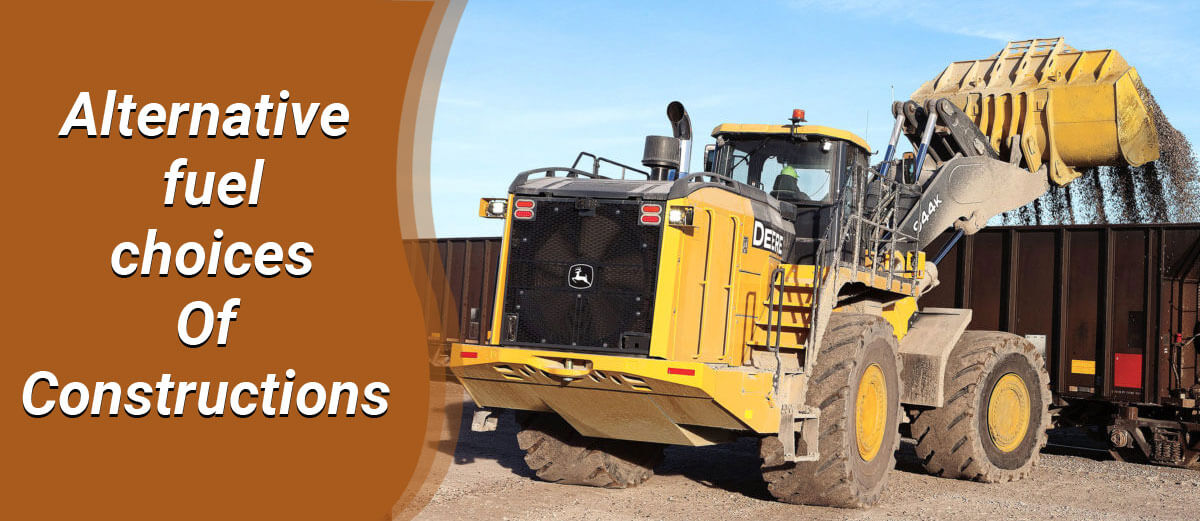Alternative fuel choices Of Constructions
TweetLast year Hyundai Construction Equipment linked up with Hyundai Motor Group to develop hydrogen-powered construction equipment. Hyundai CE signed a Memorandum of Understanding (MOU) regarding the joint-development of hydrogen cell construction equipment with Hyundai Motors and Hyundai Mobis at its Mabuk research facility in Yongin-si, Gyeonggi-do, South Korea .
Together, the three companies decide to develop hydrogen-powered forklifts and medium/large-capacity hydrogen-powered excavators over subsequent few years.
According to the MOU, Hyundai Motors and Hyundai Mobis will design and manufacture hydrogen cell systems, including power packs, while Hyundai Construction Equipment will design, manufacture, and evaluate the performance of excavators and forklifts.
The company said that, "given the rapidly rising demand for eco-friendly equipment round the world in recent years," they expect hydrogen-based construction equipment to assist them compete within the global construction market moving forward.
Furthermore, compared to lithium batteries, which are marred by structural issues limiting various attempts to extend battery capacity, hydrogen fuel cells are much easier to expand, making them a way more logical choice for giant forklifts or excavators, it added.
Commercialisation of hydrogen equipment
Mr Lee Jong-chan, a senior researcher at Hyundai CE, Research & Development, told International Construction that the company's goal is to develop hydrogen excavators by 2024.
"There is not any technical barrier to the 2023 production of a hydrogen-powered forklift,"he says. "However, the commercialisation of hydrogen construction equipment should take under consideration many factors, including hydrogen prices, supply infrastructure and government policies.
"As the Korean government has very aggressive goals and investment plans for hydrogen infrastructure and expansion of hydrogen-fuelled cars – and therefore the supply chain is rapidly developing in Korea thanks to the expansion of hydrogen-fuelled cars – we expect commercialisation in South Korea to progress quickly."
He said that hydrogen forklift prototypes are being tested and evaluated and added that it's going to be possible to use hydrogen to power other Hyundai CE machines "if sufficient business feasibility for hydrogen field is verified, it'll be possible to expand it."
Speaking at the signing of the MOU Hwang Jong-hyun, Head of the Research & Development Division for Hyundai Material Handling at Hyundai Construction Equipment, said, "With this latest agreement, we've prepared a foundation upon which we will secure core technology in hydrogen-powered construction equipment before our competitors."
Hyundai CE said it's continued to specialise in developing "eco-friendly" construction equipment and machinery in recent years. It said it mass-produced the primary reel-type electric excavator (wired-type equipment used with its power line plugged in) in 2010, and in 2018, developed alittle electric excavator equipped with an outsized capacity battery for the primary time in Korea.
Elsewhere, JCB has developed what it said is that the construction industry's first hydrogen-powered excavator.
The 20-tonne 220X excavator, powered by a hydrogen cell , has been undergoing testing at JCB's quarry proving grounds. consistent with JCB the event means they're the primary construction equipment company within the world to unveil a working prototype of an excavator powered by hydrogen.
JCB confirmed to International Construction that it does decide to eventually make the hydrogen-powered excavator commercially available but there's no date set yet for this. Asked if JCB has any plans to introduce hydrogen power to any of its other machines the corporate added,"We are the primary construction equipment company within the world to unveil a working prototype of an excavator powered by hydrogen. At the instant that's what our plans are focused on."

